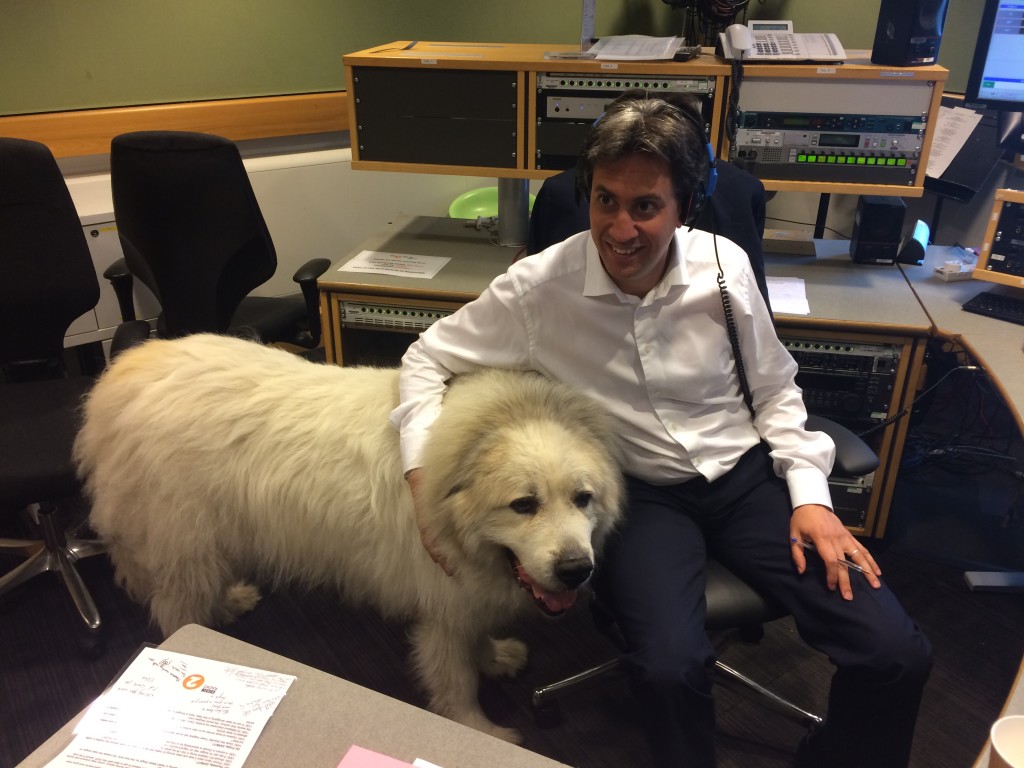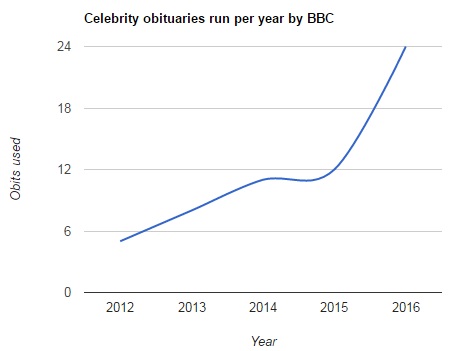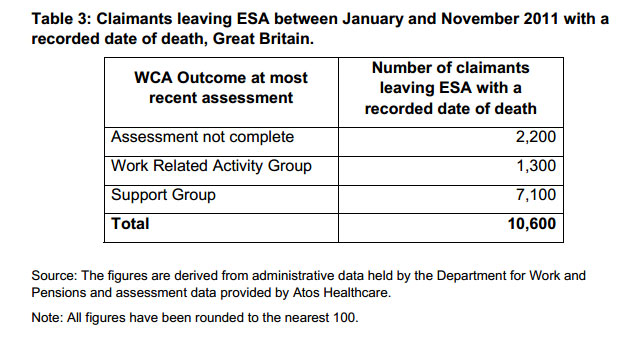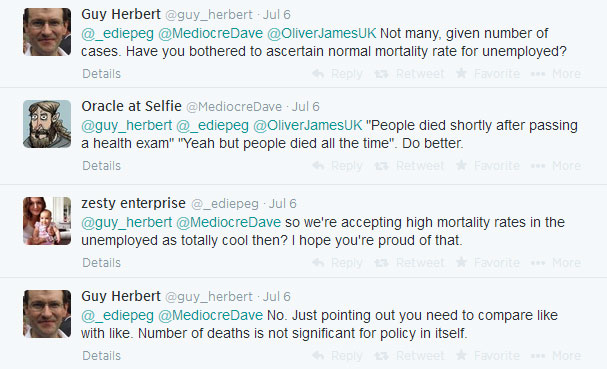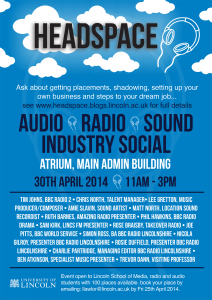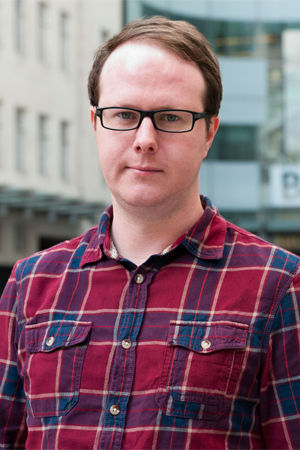It was the most unlikely of scenarios. The former leader of the Labour Party was not only presenting a programme on Radio 2, not only interviewing the lead singer of Napalm Death, but was also having a go at ‘singing’ a bit of death metal himself (well, Grindcore to be precise). Here’s how it came to be.
The Press Release
I work on the Jeremy Vine Show. It’s a news and current affairs programme reaching 7.4m people a week. During the summer holidays of 2017 two prominent political party leaders, Ed Miliband and Iain Duncan Smith, took on presenting duties for a week each.
It was actually during the week before Ed was on, when Jeremy was presenting the programme as normal, that I’d first suggested the ‘metal’ item. I received a press release from Dan Tobin at Earache records to my personal email address. He was alerting me to the fact that for the first time ever the Glastonbury music festival would have its own extreme metal stage. His email read:
Wanted to make you aware of what is going on with Glastonbury at the end of the month, as Earache will have its own stage there
If you’re not aware of what Earache does; for many years we released most of the classic extreme metal and punk bands such as Napalm Death, Carcass, Morbid Angel and Godflesh
I get a LOT of press releases every day and it’s impossible to consider most of them. As for this one…why on earth would news of an extreme metal stage at Glastonbury be of any interest to ‘The Jeremy Vine Show’ on Radio 2?! I so so so nearly deleted it. But, I thought, we’d never actually covered the topic of extreme metal or explored for our audience why people love that particular genre.
The day I pitched this idea in our regular morning meeting it didn’t quite make it. Most of what we feature on the programme is decided in the morning based on the day’s news. However, occasionally, when we hit on a topic we’ve never covered before (eg. extreme metal) we scout around to see if it might be worth setting up for a future programme. That’s exactly what happened here, and it was the case that we were speculating on a date when Ed would be presenting the show.
The Guest
Full marks to Dan at Earache records. I phoned him to say that – oddly enough – we were really interested to feature the metal stage on Radio 2. And before I knew it he had rustled up a potential guest. It was not just any old guest. He was offering the lead singer of Napalm Death. Anyone involved in the metal scene will tell you how big Napalm Death are. Ed Miliband + Napalm Death = what’s not to love. We went with it.
The Interview
Barney from Napalm Death was completely brilliant. Genuine, sincere, articulate, grounded and willing to buy in to what we were trying to do.
What we were trying to do was two-fold:
- genuinely shed light on the extreme metal movement for our listeners
- get Ed Miliband to have a go at singing metal
It was part (2) that was more tricky because at no point did we want to trivialise in any way Barney’s profession or make light of an incredibly popular musical genre. Hopefully anyone who heard the full interview will agree that a long time was spent on serious and respectful discussion of the musical artistry and the purpose behind it.
Looking back, however, there’s no doubt that excellent-sport Ed ‘having a go’ was an exceptional, surreal, and brilliant moment of broadcasting. One that went, as they say, ‘viral’.
This Facebook video’s had 4.3m views at the time of writing.
And ‘in the moment’ this tweet captured the full ‘roar’ of Ed:
Ed Miliband just attempted to sing death-metal on Radio 2, tutored by the lead singer of Napalm Death. You’re welcome. pic.twitter.com/1gnZgSMU9O
— Tim Johns (@timoncheese) June 21, 2017
Ed and Barney were a centrefold pull-out poster in Kerrang Magazine.
Hey @Ed_Miliband we went & bought the new @KerrangMagazine especially so we could put the poster on the wall at Radio 2 pic.twitter.com/jo5RjIt4eL
— Tim Johns (@timoncheese) June 28, 2017
It was in all the papers.
And streaming of Napalm Death on Spotify supposedly shot up by more than 200%.
Radio Producers – Let’s Recreate This!
No. Impossible. It’s a great example of how sometimes it takes a fairly random series of events to produce a moment like this. Sure – you have to seize the opportunity, be open to all-sorts and produce the on air item as best you can – but ultimately in this case it took a huge number of random circumstances to come together and join forces to produce a bizarre and brilliant moment of broadcasting.
Oh – and check out this outstanding remix:
BTW
Don’t get me started on the dog grooming item…








